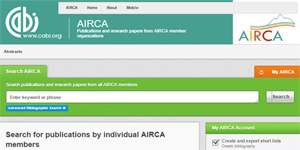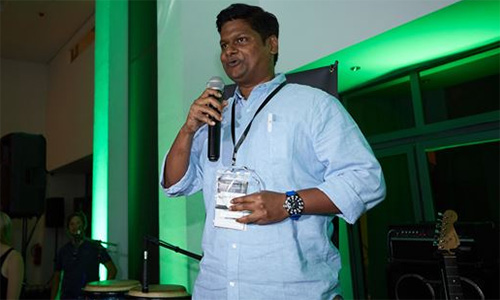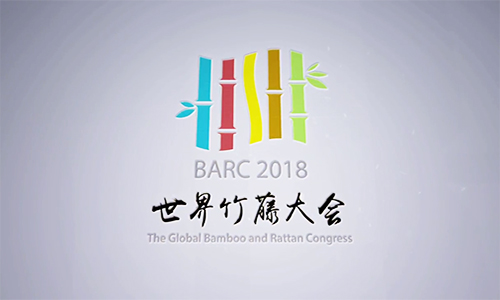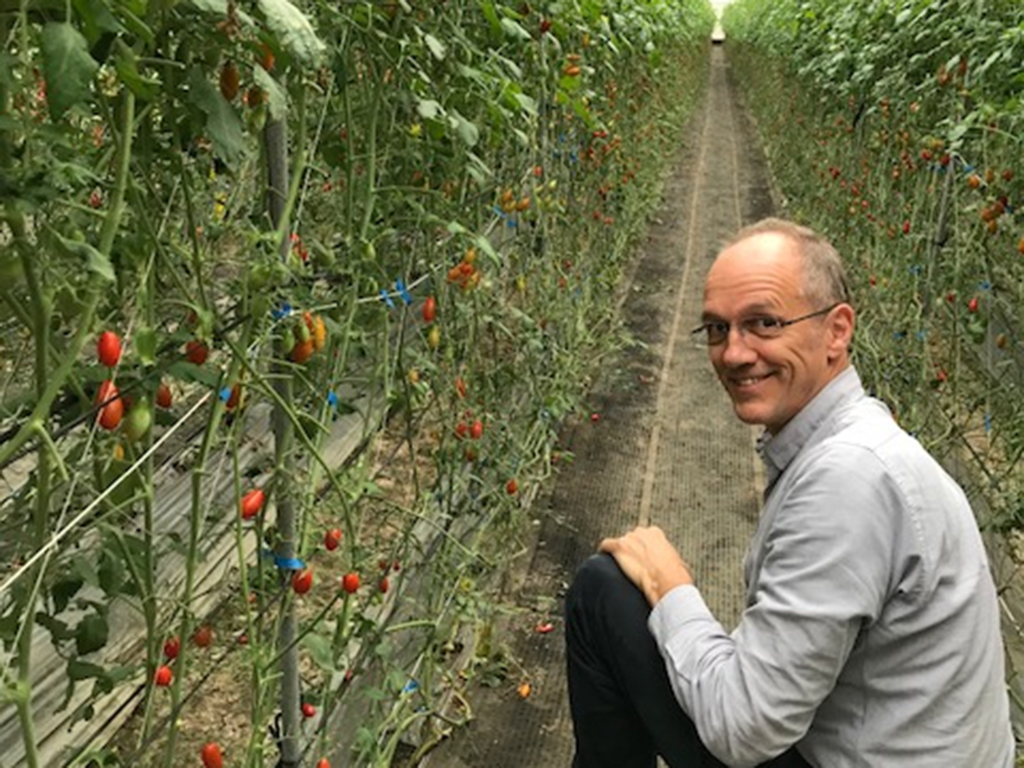Contact Us
|
Dr Tarifa Ajeif Alzaabi Director General, International Center for Biosaline Agriculture (ICBA) Address: Academic City, Al Ain Road Al Ruwayyah 2, Near Zayed University Dubai, United Arab Emirates P.O. Box 14660 Tel: +971 4 304 63 00; +971 4 304 63 55 Email: This email address is being protected from spambots. You need JavaScript enabled to view it. |
Peace Tusasirwe Address: Tel: +254-20-227-1000 E-mail: This email address is being protected from spambots. You need JavaScript enabled to view it. Skype: Ptusa2009 |
If you wish to contact individual AIRCA centres, please direct your enquiries to:
- AVRDC - The World Vegetable Center (Shanhua, Taiwan)
- CABI - Centre for Agriculture and Biosciences International (Wallingford, England, United Kingdom)
- ICBA - International Center for Biosaline Agriculture (Dubai, United Arab Emirates)
- ICIMOD - International Centre for Integrated Mountain Development (Kathmandu, Nepal)
- ICIPE - International Centre of Insect Physiology and Ecology (Nairobi, Kenya)
- IFDC - International Fertilizer Development Center (Muscle Shoals, Alabama, USA)
AIRCA Publications
 Link: www.cabi.org/airca |
This site provides a searchable database of abstracts of the key publications by AIRCA Member organizations and has been set up to make the AIRCA publication abstracts freely available, including, wherever possible, the corresponding full text, or links to the full text. Link: www.cabi.org/airca The staff working for the different AIRCA members also publish research in international scientific journals, publications and reports, and CABI indexes and abstracts this scientific content in their main research database, CAB Abstracts. For more information about CAB Abstracts, please go to http://www.cabi.org/publishing-products/online-information-resources/cab-abstracts. |
Fruits and Vegetables for Healthy Diets: Priorities for Food System Research and ActionFruits and vegetables are vital for healthy diets, but intake remains low for a majority of the global population. This paper reviews academic literature on food system issues, and opportunities for research and action, as an input into the 2021 UN Food Systems Summit in the context of the International Year of Fruits and Vegetables. The paper summarises evidence underpinning food system actions to make fruits and vegetables more avail- able, accessible and desirable through push (production and supply), pull (demand and activism) and policy (legislation and governance) mechanisms, with action options at macro (global and national) meso (institutional, city and community) and micro (household and individual) levels. It also suggests the need to recognise and address power disparities across food systems; and trade-offs among diet, livelihood and environmental food system outcomes. |
CABI and IFPRI land prestigious $250,000 Inspire Challenge 2018 Scale Up award
 CABI and the International Food Policy Research Institute (IFPRI) have landed a prestigious $250,000 Inspire 2018 Scale Up award for their ground-breaking 'Seeing is Believing' project which helps optimise farmers' agronomic decision-making.
CABI and the International Food Policy Research Institute (IFPRI) have landed a prestigious $250,000 Inspire 2018 Scale Up award for their ground-breaking 'Seeing is Believing' project which helps optimise farmers' agronomic decision-making.
10 October 2018 - CABI and partners the International Food Policy Research Institute (IFPRI) have landed a prestigious $250,000 Inspire 2018 Scale Up award for their ground-breaking ‘Seeing is Believing’ project which uses farmers’ own smartphone photographs to help them optimize their agronomic decision-making.
The prize, which was won as part of CGIAR's Platform for Big Data in Agriculture 2018 Inspire Challenge awards, was presented during the Platform's second annual congress - Decoding the Data Ecosystem - which was recently held in Nairobi, Kenya. It follows an original Inspire Challenge award of $100,000 given in 2017 to develop the latest prize-winning concept further.
The Inspire Challenge encourages the use of big data approaches to advance agricultural research and development. CABI and IFPRI's innovative entry impressed judges (which included representatives from USAID and the Bill & Melinda Gates Foundation) for showing real potential for developmental impact - having mobilized underused or misused data as well as showing the potential to develop meaningful partnerships with CGIAR and other sector members.
Global Bamboo And Rattan Congress 2018
 How Can Bamboo And Rattan Contribute To South-South Coorperation And The sustainable Development Goals?
How Can Bamboo And Rattan Contribute To South-South Coorperation And The sustainable Development Goals?
Our world today faces a set of fundamental challenges. Poverty, climate change, unsustainable resource use and ecosystem degradation pose serious threats to human wellbeing and our environment. They also slow the pace of development. In a world where 800 million people live in poverty and 1.1 billion have no access to electricity, how can we bring about development and growth in an environmentally sustainable way?
Solving these problems requires new approaches, from people across very different sectors and between countries. It also involves 'green tools': nature-based solutions which can help lift people out of poverty while protecting the environment, stimulating genuinely green growth.
Since 1997 INBAR has been working to promote the use of two green tools - bamboo and rattan - as strategic plants which can contribute to sustainable development. Most recently, our work has contributed to at least seven of the Sustainable Development Goals.
Editorial for the AIRCA newsletter 12

The publication of this 12th edition of the AIRCA newsletter is a timely moment to update you on some staff changes within AIRCA. In their September virtual meeting, AIRCA DGs said goodbye to two true AIRCA pioneers: David Molden of ICIMOD and Trevor Nicholls of CABI. Both have retired recently from their respective positions. David and Trevor were among those who placed AIRCA on the map and I am very grateful for all the hard work they put into AIRCA, shaping it into the coalition of centers as we know it now. I look forward to meeting their successors, Pema Gyamtsho at ICIMOD and Daniel Elger at CABI in the not too distant future. In their September meeting, AIRCA DGs also sincerely thanked Marita Dieling, who resigned as executive secretary of AIRCA, and welcomed Peace Tusasirwe, our new executive secretary, based at CABI in Kenya.
This edition of the AIRCA newsletter features work from our member centers in different areas touching upon food and nutrition security, whilst the world is still grappling with the consequences of the COVID-19 pandemic. We featured some of AIRCA’s responses to the pandemic in AIRCA newsletter 11.
In this newsletter, ICIMOD highlights escalating food and livelihood insecurity issues related to the pandemic in Nepal. ICIMOD also zooms into their recently published policy paper on what COVID-19 means for mountain communities in the Hindu Kush Himalaya (HKH) region. The recommendations made are meant to guide HKH governments in planning their recovery and building back better for a more prosperous future in the face of climate change. As Eklabya Sharma, ICIMOD’s Deputy Director General puts it: ‘We will have a vaccine for COVID-19, but there’s no vaccine for climate change’.
The Middle East and Northern Africa countries are also severely affected by climate change as this part of the world faces more frequent and severe dry spells. ICBA reports on work in collaboration with the National Aeronautics and Space Administration (NASA) to generate accurate root zone soil moisture data for rainfed areas using satellite imagery, ground-based observations, and modeling techniques. This work enabled ICBA to assist government institutions in Tunisia, Jordan, Lebanon, and Morocco to operationalize their drought monitoring and management systems.
The World Vegetable Center makes a convincing case for ‘traditional vegetables’. These are crops that are grown in their region of origin or were introduced many generations ago. They are generally sturdier and more nutritious than vegetables traded globally but tend to be under-utilized. The authors show how they can be integrated into today’s food systems and how their rapidly eroding diversity can be countered.
icipe reports on testing of selected biopesticides already commercialized for control of diverse pests for their effectiveness against the highly destructive fall armyworm, a pest that infests more than 100 plant species, including maize, sorghum, rice, and sugarcane as well as a variety of horticultural crops. Two of these proved to be effective and these are now being scaled out through a Kenya-based biocontrol company. Testing of new strains against fall armyworm has been fast-tracked and is in an advanced stage thanks to an enabling policy and regulatory environment within the East African Community.
As a direct result of the pandemic, CABI reports a sharp increase in the use of online tools and information within the Plantwise Knowledge Bank, a global gateway to practical plant health information. Online workshops and training on plant health diagnostics and best-practice pest management advice have become the norm.
IFDC reports on the exciting news that Dr. Andre Bationo has been awarded the 2020 Africa Food Prize. You will learn more about this outstanding individual in this newsletter.
I hope you will find this edition of our newsletter informative and we look forward to your feedback!
Marco Wopereis
AIRCA chair


